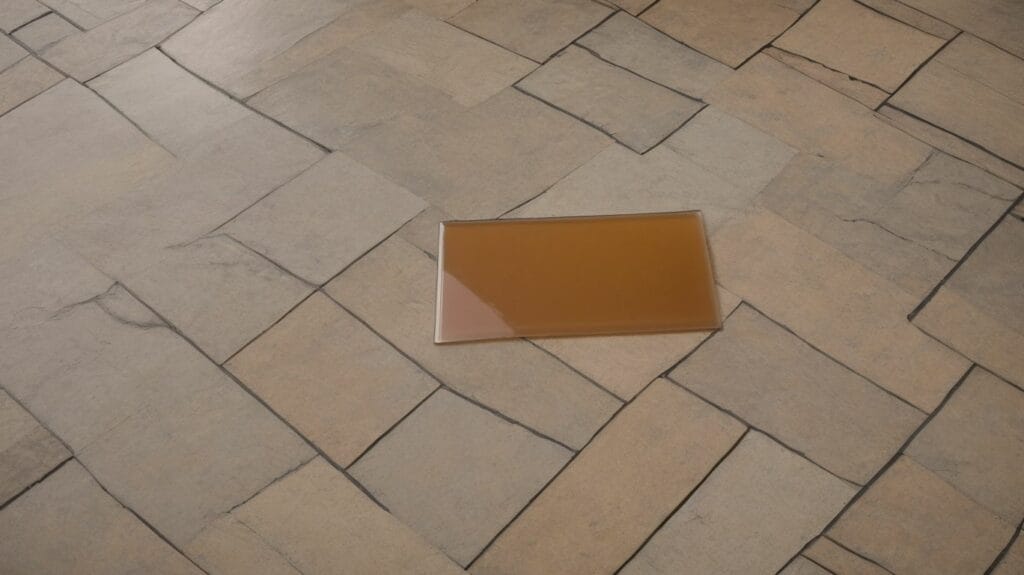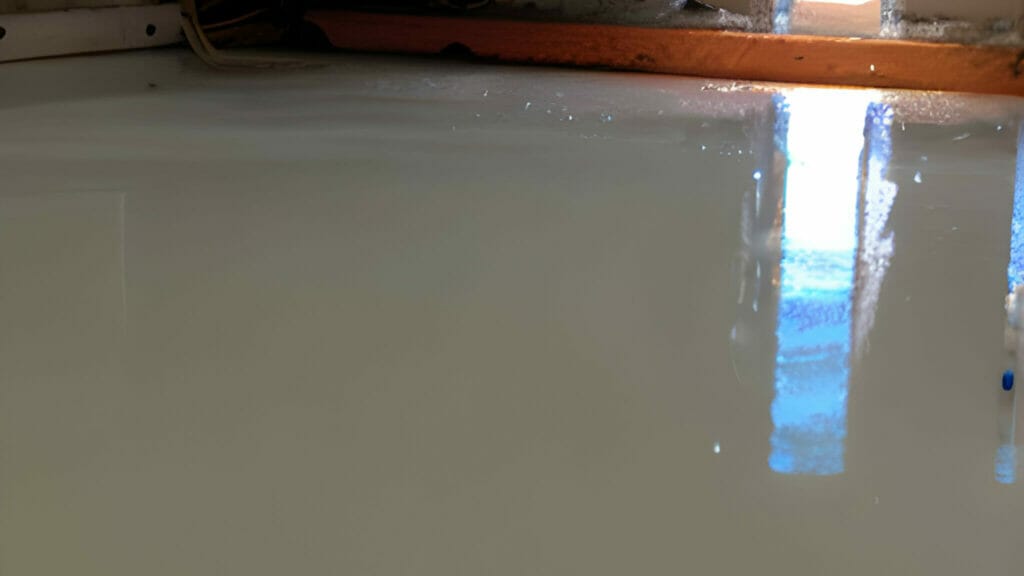Epoxy flooring is a popular choice for both residential and commercial spaces due to its durability, easy maintenance, and versatile design options. It is made from a combination of resin and hardener, creating a strong and seamless surface that is resistant to chemicals, stains, and impacts. Its popularity has raised concerns about its safety, especially for homes with children or pets.
Epoxy flooring is installed by first preparing the concrete or existing flooring surface by cleaning, repairing any cracks or damages, and applying a primer. The epoxy mixture is then poured and spread evenly over the surface, creating a smooth and seamless finish. It is left to cure for several days before use.
The benefits of epoxy flooring go beyond its aesthetic appeal. Some of its advantages include:
- Durability: Epoxy flooring can withstand heavy foot traffic and is resistant to impacts, making it a durable flooring option for high-traffic areas.
- Easy to Clean: Its seamless surface makes it easy to clean and maintain, requiring only regular sweeping and mopping.
- Chemical and Stain Resistant: Epoxy flooring is highly resistant to chemicals, stains, and spills, making it a suitable option for areas prone to spills and accidents.
- Versatile Design Options: Epoxy flooring comes in a variety of colors, textures, and patterns, allowing for customization and design flexibility.
Despite its benefits, many people wonder if epoxy flooring is safe for their homes. The short answer is yes. As long as it is installed correctly and proper safety precautions are taken, it is a safe flooring option. However, there are some potential health risks to consider.
Some potential health risks of epoxy flooring include eye and skin irritation and respiratory issues due to the fumes released during installation. To prevent these risks, it is essential to follow safety precautions such as wearing protective gear and ensuring proper ventilation during installation.
To maintain the longevity and safety of epoxy flooring, it is important to clean up spills and stains promptly and regularly sweep and mop the surface. Avoid using harsh chemicals or abrasive tools when cleaning, as they can damage the flooring. It is also recommended to have a professional resurface the flooring every few years.
If you are considering epoxy flooring for your home, consider factors such as the area’s foot traffic, your budget, and your lifestyle before making a decision. Some alternative flooring options to consider include hardwood, laminate, and vinyl flooring. Ultimately, the choice will depend on your personal preferences and needs.
Key Takeaways:
What Is Epoxy Flooring?

Photo Credits: Diyepoxyresin.Com by George Ramirez
Epoxy flooring is a resilient and durable type of surface coating. It is made by combining resin and a hardening agent, which creates a strong and adhesive bond when applied to concrete or other flooring materials.
Pro-tip: When applying epoxy flooring, make sure to have proper ventilation to reduce exposure to volatile organic compounds (VOCs).
How Is Epoxy Flooring Installed?
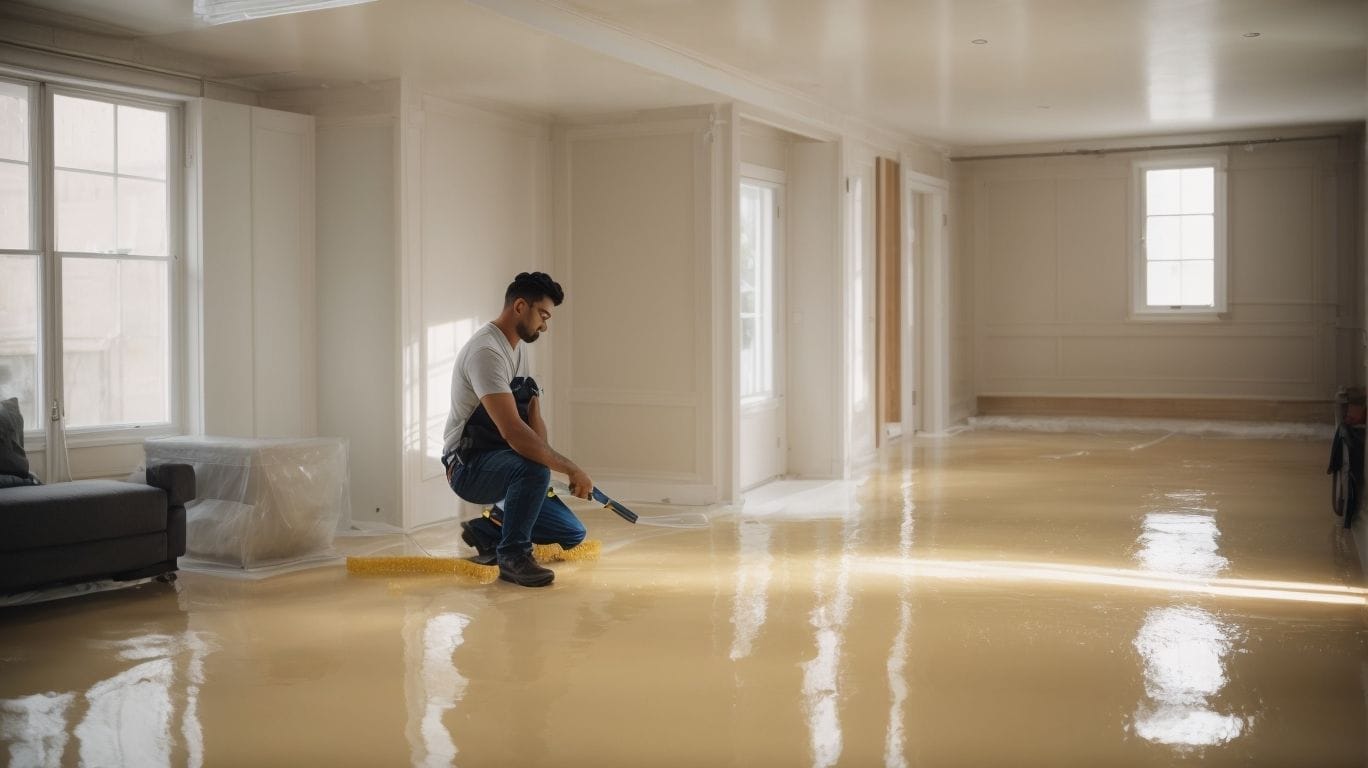
Photo Credits: Diyepoxyresin.Com by Joshua Martin
- Surface Preparation: To properly install epoxy flooring, begin by cleaning and degreasing the floor. Then, etch or grind the surface to create a rough texture for better adhesion.
- Priming: Enhance adhesion and prevent air bubbles by applying a primer before the epoxy.
- Mixing Epoxy: Follow the manufacturer’s instructions to mix the epoxy resin with the hardener.
- Application: Use a roller to evenly apply the epoxy, working in sections.
- Curing: After application, allow the epoxy to cure for the specified time before walking on or placing heavy items on the floor.
What Are the Benefits of Epoxy Flooring?
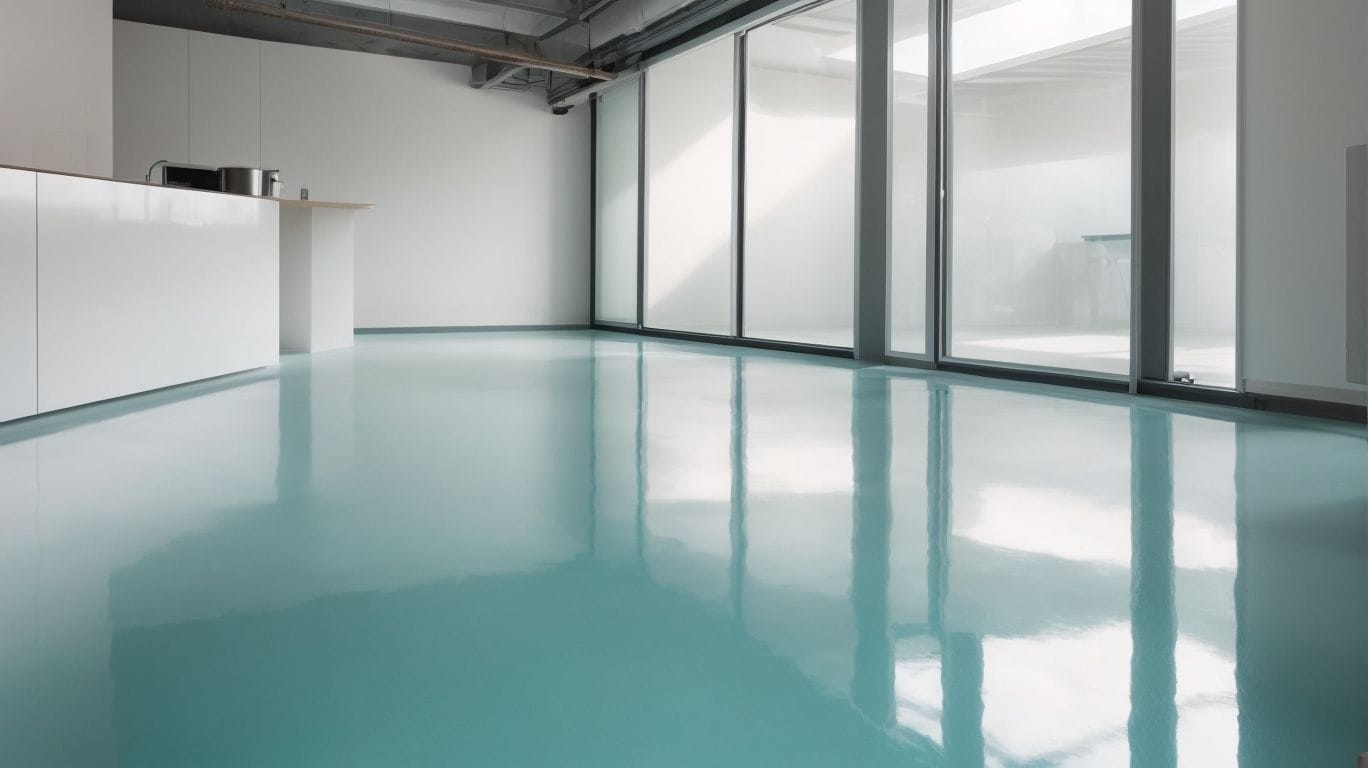
Photo Credits: Diyepoxyresin.Com by Jesse Perez
Epoxy flooring has gained popularity in recent years as a durable and low-maintenance option for homes. But what exactly are the benefits of choosing epoxy flooring for your home? In this section, we will explore four key advantages of epoxy flooring: its durability, easy cleaning, chemical and stain resistance, and versatile design options. By understanding these benefits, you can make an informed decision on whether epoxy flooring is the right choice for your home.1. Durability
- High-Performance Coating: Epoxy flooring is renowned for its exceptional durability, making it the perfect choice for high-traffic areas.
- Preparation: Properly preparing the concrete surface is crucial in ensuring a strong bond, which ultimately enhances the flooring’s durability.
- Application Technique: Applying epoxy in multiple layers with sufficient curing time in between coats significantly increases its durability and strength.
Pro-tip: To maintain the durability of epoxy flooring, consider applying a topcoat for additional protection against wear and tear.
2. Easy to Clean
- Regular Cleaning: Sweep or vacuum the floor to remove dirt and debris.
- Mop with Mild Cleaner: Use a mop with a gentle cleaner to easily remove stains and spills.
- Deep Cleaning: Periodically scrub the floor with a brush and non-abrasive cleaner to maintain its shine and keep it easy to clean.
Epoxy flooring, known for its durability and easy maintenance, originated in the early 20th century when it was used for industrial purposes. Over time, it gained popularity due to its seamless and hygienic properties, transitioning from industrial to residential use. Now, it is known for its easy-to-clean nature, making it a popular choice for homes and businesses alike.
3. Chemical and Stain Resistant
- Epoxy flooring offers exceptional resistance to chemicals and stains, making it a perfect choice for areas that are prone to spills and stains.
- Surface Preparation: Before applying the epoxy coating, it is important to thoroughly clean the surface to remove any dirt, grease, or oil.
- Primer Application: To ensure better chemical resistance and adhesion, it is recommended to apply a primer before coating with epoxy.
- Epoxy Coating: For superior protection against chemicals and stains, it is important to use high-quality epoxy products.
Pro-tip: To maintain the chemical and stain-resistant properties of the epoxy floor, regularly clean it with a pH-neutral cleaner.
4. Versatile Design Options
- Epoxy flooring offers versatile design options, including a wide range of colors, patterns, and textures to cater to various aesthetic preferences.
- Custom designs like metallic epoxy, flake epoxy, or 3D epoxy can enhance the visual appeal of the flooring and add a unique touch to any space.
- There are also options for incorporating logos, signage, or decorative elements, allowing for personalization of both commercial and residential spaces.
Is Epoxy Flooring Safe for My Home?
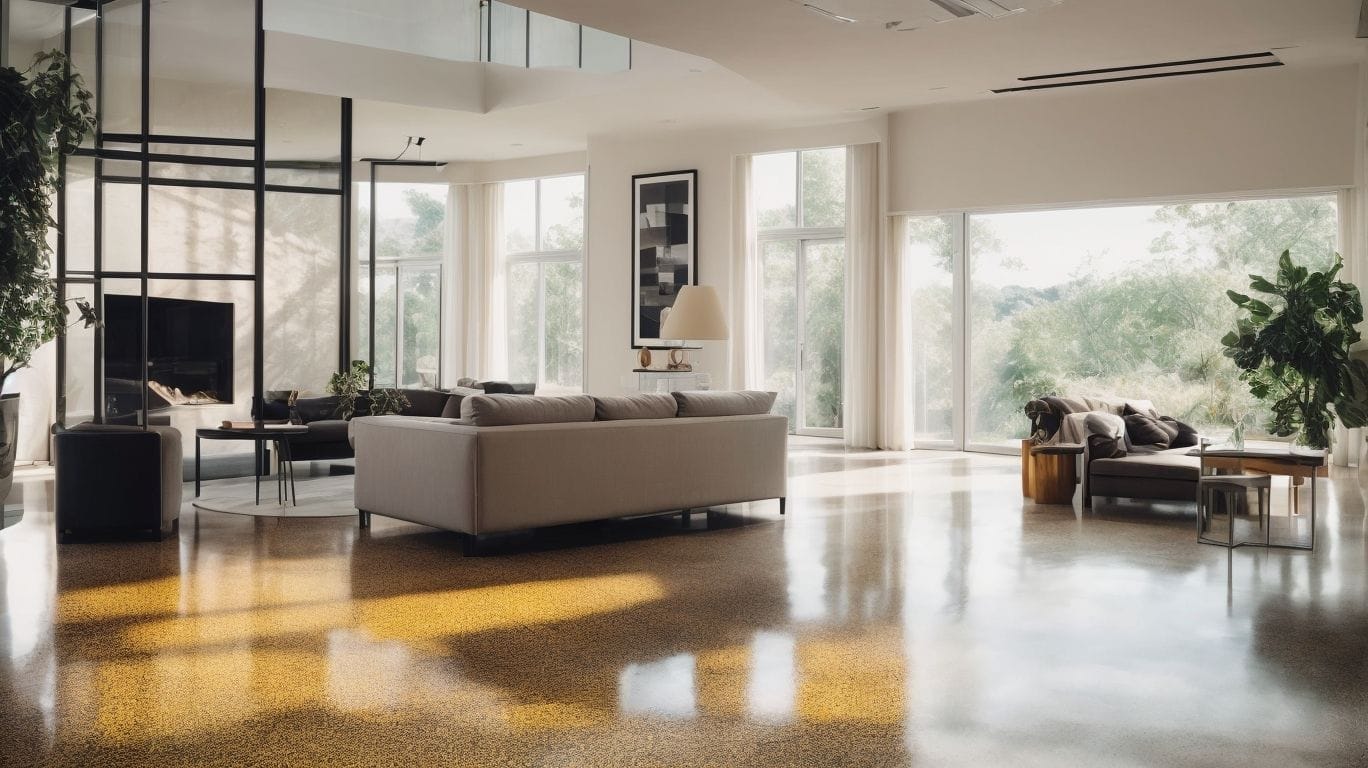
Photo Credits: Diyepoxyresin.Com by Bradley Walker
Is Epoxy Flooring Safe for My Home if Installed and Maintained Properly? It Provides a Seamless, Durable, and Easy-to-Clean Surface, Making It Ideal for High-Traffic Areas. However, It Is Important to Ensure Proper Ventilation During Installation to Prevent Exposure to Fumes. Consider Using Low-VOC or No-VOC Epoxy Products for a Healthier Indoor Environment.
A Family in Ohio Installed Epoxy Flooring in Their Garage, Providing a Safe and Aesthetically Pleasing Space for Their Children to Play and Ride Bikes.
What Are the Potential Health Risks of Epoxy Flooring?
During the installation process, there is a potential for health risks associated with epoxy flooring due to the release of volatile organic compounds (VOCs). These compounds can cause respiratory issues and skin irritation with prolonged exposure. It is important to have proper ventilation and wear protective gear during installation to minimize these risks.
What Are the Safety Precautions to Take When Installing Epoxy Flooring?
When installing epoxy flooring, safety should be the top priority. Here are some essential safety precautions to consider:
- Make sure there is proper ventilation to avoid inhaling any fumes.
- Wear protective gear such as gloves, goggles, and a respirator.
- Follow the manufacturer’s instructions for safe handling and application.
- Keep the work area well-organized and free of obstacles to prevent accidents.
Epoxy flooring was initially developed in the early 20th century as a coating for industrial use, known for its strength and resistance to chemicals.
How to Maintain Epoxy Flooring for Longevity and Safety?
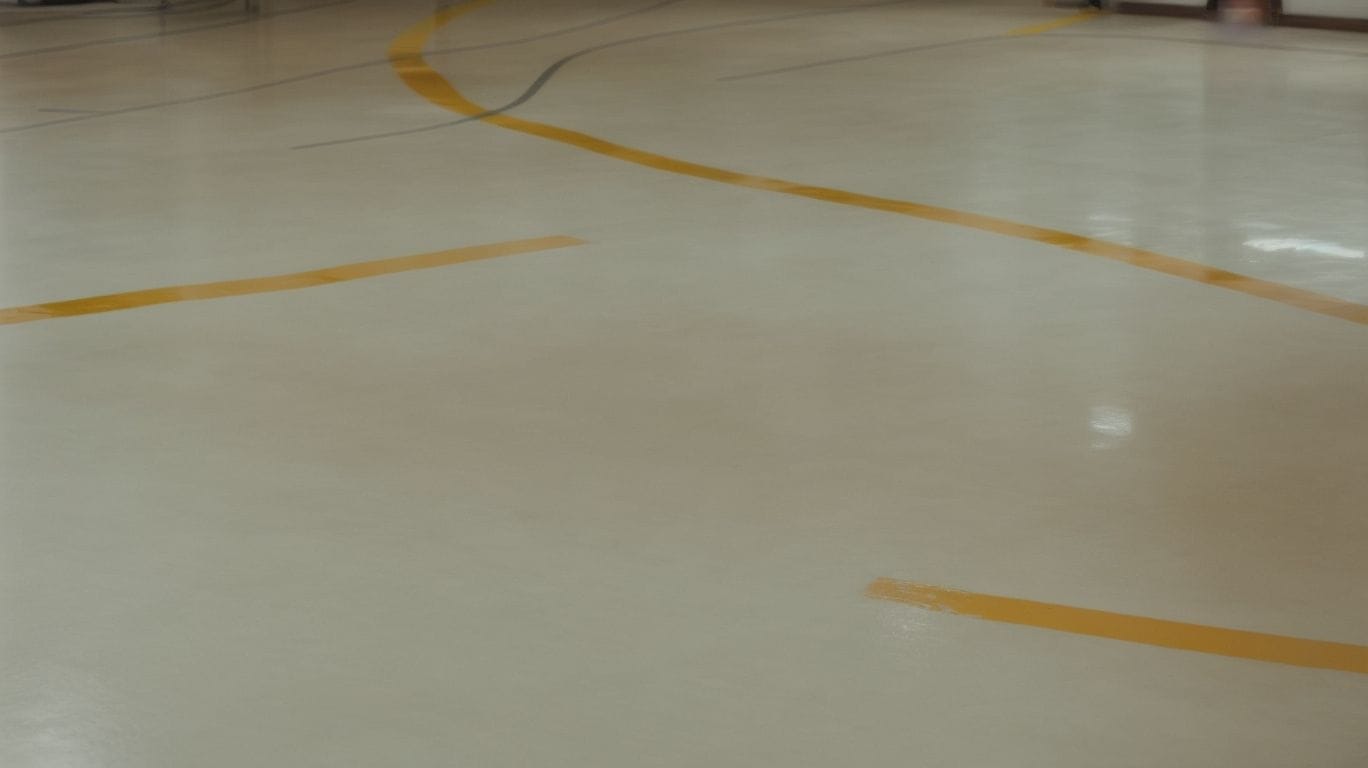
Photo Credits: Diyepoxyresin.Com by Joseph Perez
- To ensure longevity and safety of your epoxy flooring, follow these maintenance tips:
- Clean regularly: Use a soft bristle broom or a dust mop to remove dirt and debris.
- Spills and stains: Immediately clean any spills or stains to prevent discoloration and damage.
- Protective pads: Place felt or plastic protective pads under furniture legs to prevent scratching the epoxy surface.
- Prevent damage: Avoid dragging heavy items across the floor to prevent scratches and dents.
- Regular inspection: Periodically inspect the floor for any signs of wear or damage and address them promptly.
Is Epoxy Flooring a Good Choice for My Home?

Photo Credits: Diyepoxyresin.Com by Jack Thompson
Is Epoxy Flooring a Good Choice for My Home? Epoxy flooring is an excellent option for your home, offering durability, stain resistance, and easy maintenance. Its sleek, modern appearance is perfect for high-traffic areas such as the garage or basement. Consider epoxy as a seamless and long-lasting flooring solution that will enhance the aesthetic appeal of your home.
What Are the Factors to Consider Before Installing Epoxy Flooring?
Before installing epoxy flooring, there are several important factors to consider. These include:
- The condition of the existing surface
- The level of foot traffic
- The desired aesthetic
It is crucial to ensure that the surface is clean, dry, and free of cracks in order to achieve a seamless finish. Additionally, it is important to evaluate the durability needed for the specific space, whether it is a residential garage or a commercial showroom. Finally, it is essential to assess the budget and maintenance requirements for long-term satisfaction.
Taking these factors into consideration will help ensure a successful and satisfactory epoxy flooring installation.
What Are the Alternative Flooring Options to Consider?
When considering flooring options, it’s important to explore the alternatives available. These include:
- Laminate Flooring, known for its durability and easy maintenance.
- Vinyl Flooring, which offers water resistance and a wide range of design options.
- Hardwood Flooring, which adds a timeless and elegant look to homes.
- Tile Flooring, which provides durability and comes in various materials such as ceramic, porcelain, and natural stone.
